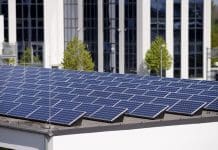Power supply delays can have a significant impact on construction projects, wasting time, fuel and money. Here Head of Sales and marketing for business at npower Business Solutions, Beverly Tomkins, shares her experience and explains what can be done to install an electrical connection 75% quicker
Slow access to power supply is undeniably one of the main reasons large construction projects are delayed. Customers requiring a new meter, with half-hourly metering, have in the past typically needed to wait 15 to 20 days from the initial call to a supplier to an engineer arriving. In many instances this results in businesses hiring a generator and spending further budget on rental and fuel costs, not to mention the impact of fumes.
However, the delays are not without reason. It’s formidably more complicated than it seems getting a new power supply up and running on a site. To provide some insight into the process, let me take you through the set-up of a new electricity connection.
Let’s assume your site is ready, you are sitting on supplies, your team are twiddling their thumbs and you urgently need power. You pick up the phone and request it. This is what happens next:
1. The request has to go through a registration process, with the supplier notifying the national database. This can take days.
2. After that is accepted, the supplier has to appoint a meter operator, a data collector and a data aggregator. Each member has to accept the appointment so you are typically looking at another three working days to get these three acceptances back.
3. Once acceptances are in, suppliers look to get a metering date in the diary.
4. Finally, a metering flow is sent out with a 10-day working notice period.
The process shared above has been long established in the sector; however, recent partnerships and new technology have challenged this status quo. As a result, construction sites are now able to arrange supply, installation of the meter and accept electricity on-site in just five working days. In fact, earlier this month, a customer of npower Business Solutions urgently needed supply to meet project deadlines and just four days later, the site was provided with electricity enabling the customer to hand over the site to their own customer within their agreed deadline.
 Saving businesses from a surge of construction costs by avoiding reliance on inefficient power generators is only one advantage of this fast-track service. It also helps reduce the impact on the environment. In fact, due to inefficient ordering or storing, the UK Green Building Council claims that of the 400 million tonnes of materials delivered to construction sites each year, around 15% end up in landfill. A portion of that is attributable to poor project management – as site managers don’t recognise the impact a lack of power has on the project.
Saving businesses from a surge of construction costs by avoiding reliance on inefficient power generators is only one advantage of this fast-track service. It also helps reduce the impact on the environment. In fact, due to inefficient ordering or storing, the UK Green Building Council claims that of the 400 million tonnes of materials delivered to construction sites each year, around 15% end up in landfill. A portion of that is attributable to poor project management – as site managers don’t recognise the impact a lack of power has on the project.
Understanding the process behind new energy connections allows businesses to save both time and resources. Added to that the knowledge on how to speed up the process should make the difference between a delayed project and successful completion.
Beverly Tomkins
npower Business Solutions
www.npower.com/business-solutions/
Twitter: @npower_nbs














